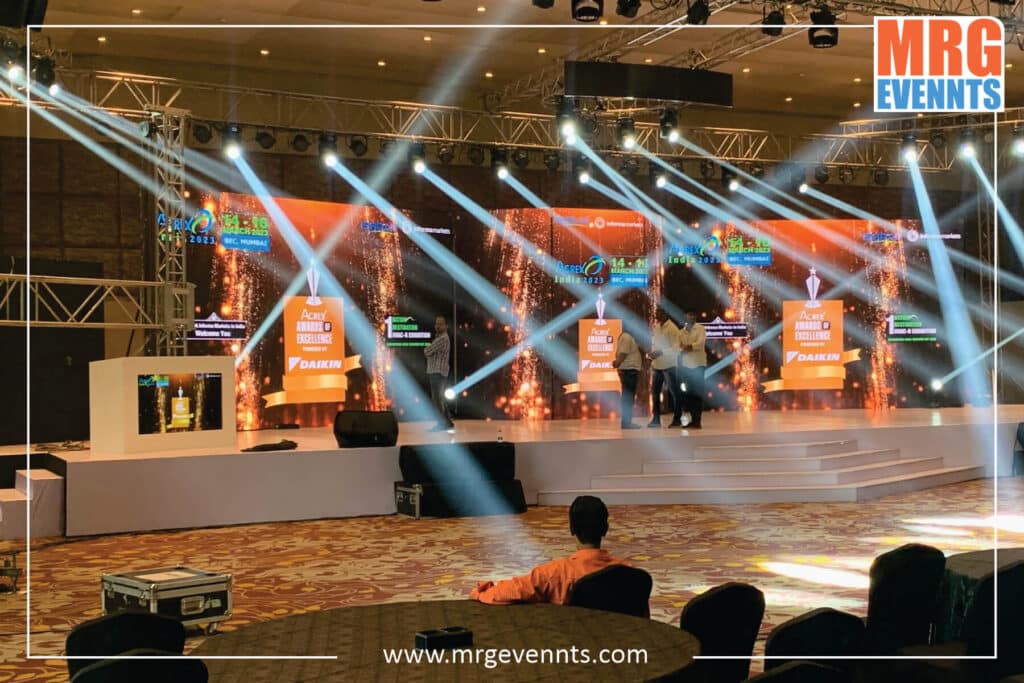Corporate events are a pivotal component of the modern business landscape, playing a significant role in strengthening relationships, enhancing brand identity, and achieving various organizational objectives. In this article, we delve into the multifaceted world of corporate events, exploring their types, planning strategies, trends, and the lasting impact they have on businesses.
Types of Corporate Events
Corporate events come in various forms, ranging from conferences and seminars to product launches, team-building activities, and trade shows. These events serve diverse purposes, including knowledge sharing, networking, and showcasing products and services.
Planning a Successful Corporate Event
Successful corporate events don’t just happen; they require meticulous planning. Event organizers must focus on aspects like setting clear objectives, budgeting, venue selection, and catering. Attention to detail is paramount to ensuring a seamless experience for attendees.

Corporate Event Trends
In the digital age, corporate events have evolved to incorporate technology. Virtual and hybrid events are becoming increasingly popular. Furthermore, personalization and attendee engagement are central trends, as businesses seek innovative ways to stand out.
Benefits of Corporate Events
Corporate events offer numerous advantages. They foster internal and external networking, boost employee morale, and can lead to significant ROI. Success factors include clear event goals and post-event assessment.
Challenges in Corporate Event Management
Organizing corporate events comes with challenges. Limited budgets, logistics, and unpredictable circumstances can pose hurdles. Successful event planners are adept at troubleshooting and adapting to changing situations.
Making Corporate Events Memorable
Memorability is a hallmark of a successful
. Engaging attendees through interactive sessions, dynamic speakers, and personalized experiences can leave a lasting impression.
Sustainability in Corporate Events
The global shift toward sustainability has affected the event industry. Eco-friendly events, waste reduction, and responsible sourcing have become crucial considerations.
Corporate Event Marketing
Effective marketing is essential for event success. Leveraging digital tools, such as social media and email marketing, can help you reach your target audience and maximize attendance.
Measuring Event Success
Key performance indicators (KPIs) are used to gauge the success of corporate events. Evaluating attendee feedback and analyzing data can help organizers make improvements for future events.
Case Studies
Real-world examples of successful
can provide valuable insights. Learning from industry leaders and understanding their strategies can guide your event planning efforts.

Future of Corporate Events
As businesses evolve, so do corporate events. Virtual and hybrid formats are expected to persist, and new trends will continue to shape the industry. Staying adaptable is key to success.
Budgeting for Corporate Events
A well-structured budget is essential for efficient event planning. Allocating resources wisely and exploring cost-effective options can help ensure the event’s success without overspending.
Legal and Compliance Considerations
Ensuring legal and ethical compliance is paramount. Event organizers must address liability issues, risk management, and adhere to all relevant regulations and codes of conduct.
Conclusion
Corporate events are indispensable tools for modern businesses, offering a plethora of benefits. Their impact on brand recognition, employee engagement, and networking is undeniable. To thrive in a competitive business world, organizations must harness the power of corporate events.
5 Unique FAQs:
- What is the most common type of corporate event?
- Conferences and seminars are among the most common types of corporate events. They serve as platforms for knowledge sharing and networking.
- How can a business measure the ROI of a corporate event?
- Measuring ROI involves assessing factors like attendee satisfaction, lead generation, and revenue generated as a direct result of the event.
- What are the emerging trends in virtual corporate events?
- Emerging trends include gamification, AI-driven networking, and interactive virtual experiences to keep attendees engaged.
- Are virtual events as effective as in-person events?
- Virtual events can be highly effective, offering the advantage of reaching a global audience. Their success depends on the event’s goals and execution.
- How can businesses ensure sustainability in their corporate events?

- Implementing sustainable practices like reducing waste, using eco-friendly materials, and supporting local businesses can contribute to the sustainability of corporate events.

